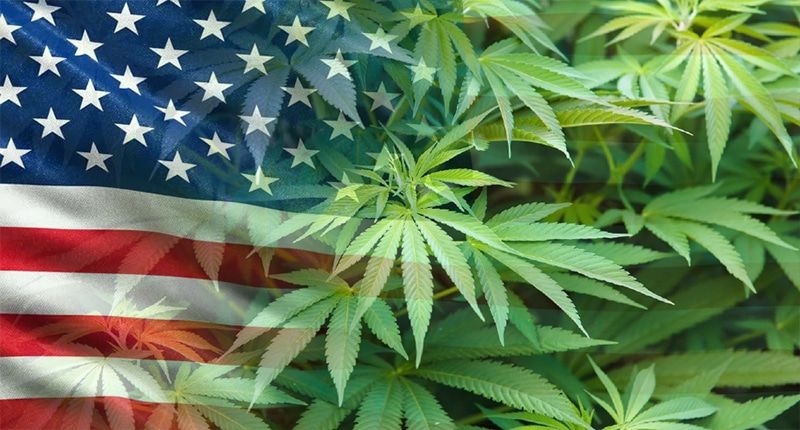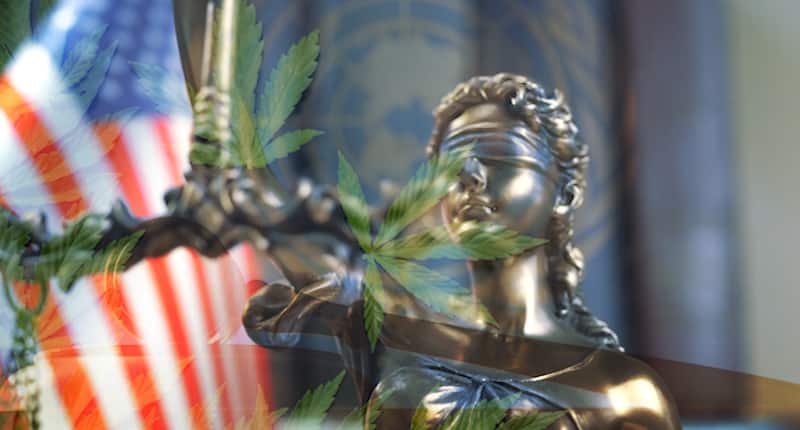Cuomo’s New York Marijuana Legalization Plan Draws Mixed Reviews From Advocates
After much anticipation, the full text of New York Gov. Andrew Cuomo’s (D) marijuana legalization proposal was released late Tuesday night as part of his budget request for 2021.
So far, the measure has been met with mixed reviews from advocates and stakeholders. While many feel encouraged that the groundwork seems to have been laid for a legal cannabis market, some are taking issue with provisions related to equity and regulatory control, as well as a continued prohibition on home cultivation. The proposal also lacks license categories for delivery services and on-site consumption.
The governor has released various details about his legalization plan in recent weeks, but this is the first time that the specific legislative language is available. Cuomo has twice attempted to enact the policy change through previous budgets, only for the idea to stall amid disagreements over details with lawmakers. This time around, the administration and legislators seem confident reform will advance, especially in light of legalization being enacted in neighboring New Jersey.
But based on feedback from advocates, it appears that there will still be significant efforts to amend the governor’s proposal as it is considered by the legislature.
Here are some of the main features of Cuomo’s legislation:
-There would be no home grow option for medical cannabis patients or recreational consumers. The governor’s budget proposal last year did include the option for patients but excluded the adult-use market—a decision that prompted controversy, especially after it was revealed that major marijuana companies urged the governor to continue criminalizing home cultivation.
-Cuomo and his budget director on Tuesday touted a new provision allocating $100 million in cannabis tax revenue to grants for communities most impacted by prohibition over four years. But advocates say that amount is far too little, which may create conflict when the bill heads to the legislature, where leaders have emphasized the need to aid people from communities harmed by the drug war.
-When it comes to local control, individual municipalities with populations of 100,000 or more will have the option to opt out of allowing marijuana businesses to operate in their area. The way the legislation is written, if a county decides to opt out, it wouldn’t apply to any cities within its jurisdiction that also have a population of 100,000 or more unless they proactively chose to enact their own ban. They have until the end of 2021 to opt out.
-The bill does not create licenses for delivery services or for on-site consumption at dispensaries, but does allow regulators to create additional license types, which leaves the door open for those categories to potentially come online in the future. It also provides for the issuance of caterer’s permit, which would allow the “service of cannabis products at a function, occasion or event in a hotel, restaurant, club, ballroom or other premises” where marijuana could “lawfully be sold or served” during certain hours.
-The proposal generally disallows vertical integration for adult-use cannabis businesses, preventing them from having ownership over everything from production to sales. However, existing medical cannabis organizations may be able to submit applications for recreational licenses and stay vertically integrated.
-Advocates are also pushing back against the concentration of power that would be given to an individual executive director of the proposed new Office of Cannabis Management, which would be responsible for regulating the marijuana and hemp markets.
-The governor is calling for three types of taxes on recreational cannabis products: one based on THC content to be applied at the wholesale level, a 10.25 percent surcharge tax at the point of purchase by consumers and applicable state and local sales taxes.
Activists expect that this proposal will serve as a starting point for negotiations with legislators, several of whom may well push for a greater emphasis on social equity in legalization legislation.
“It is encouraging that Governor Cuomo has now acknowledged the need to devote resources to social equity and community reinvestment in his plan to legalize adult use cannabis, but it is disappointing that his proposal, as stated, devotes only a fraction of the funding that is needed in these program areas,” Melissa Moore, New York State director of the Drug Policy Alliance, said in a press release.
“We, along with our community and legislative allies, have long said that legalization needs to be done right if it is to be done right now—that means centering communities that have borne the brunt of racist enforcement for far too long. Governor Cuomo has listened to the calls to include social equity in his legalization platform. But to the communities that have been brutalized by the immoral war on drugs for so long, the current proposal does not go even remotely far enough. We will not give up on getting this done right.”
Cuomo has recognized the need to enact the reform to promote racial justice and social equity, but he’s also repeatedly emphasized the economic opportunity that legalization represents, especially amid the coronavirus pandemic.
The administration is projecting that the state will take in $350 million annually in marijuana tax revenue once the program is up and running. Eventually, $50 million a year will go to social equity grants to promote participation in the industry by disadvantaged people.
A memo on budget revenue states that the proposal “would establish a robust social and economic equity program” that will involve “providing technical assistance, training, loans and mentoring to qualified social and economic equity applicants.”
Under the proposal, regulations for the state’s industrial hemp program seem as though they would go largely unchanged compared to the rules that took effect this year.
Unlike past sessions, the legislature will have more influence this year after Senate Democrats secured a supermajority in the November election. If the governor were to veto any bill over details he didn’t like, they could potentially have enough votes to override him.
To that end, New York’s legal cannabis market could end up looking more like what’s outlined in a bill introduced by Sen. Liz Krueger (D) and 18 cosponsors at the beginning of this month. The legislation would make it so adults 21 and older would be able to purchase cannabis and cultivate up to six plants for personal use.
It would also provide for automatic expungements for those with prior cannabis convictions and it also includes low- or zero-interest loans for qualifying equity applicants who wish to start marijuana businesses.
An 18 percent tax would be imposed on cannabis sales. After covering the costs of implementation, revenue from those taxes would go toward three areas: 25 percent for the state lottery fund, so long as it’s designated for the Department of Education; 25 percent for a drug treatment and public education fund and 50 percent for a community grants reinvestment fund.
In any case, there’s growing recognition in the state that legalization is an inevitability.
The top Republican in the New York Assembly said last month that he expects the legislature to legalize cannabis this coming session.
Senate Majority Leader Andrea Stewart-Cousins (D) said in November that she also anticipates that the reform will advance in 2021, though she noted that lawmakers will still have to decide on how tax revenue from marijuana sales is distributed.
Cuomo also said that month that the “pressure will be on” to legalize cannabis in the state and lawmakers will approve it “this year” to boost the economy amid the health crisis.
The push to legalize in New York could also be bolstered by the fact that voters in neighboring New Jersey approved a legalization referendum in November.
Separately, several other bills that focus on medical marijuana were recently prefiled in New York, and they touch on a wide range of topics—from tenants’ rights for medical cannabis patients to health insurance coverage for marijuana products.



